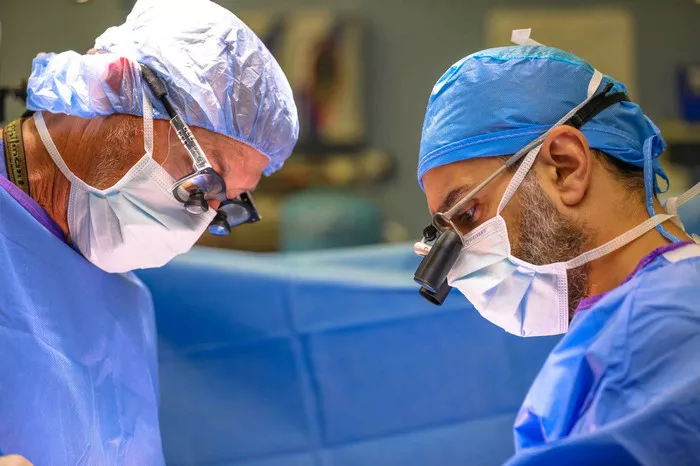In January, Dr. Mark Greyson, an assistant professor of plastic and reconstructive surgery in the University of Colorado Department of Surgery, took his hand – surgery skills to the Kilimanjaro Christian Medical Centre in rural Tanzania. He trained surgeons in the African country on advanced plastic – surgery procedures. The trip was funded by a grant from the American Association for Hand Surgery.
“It was kind of a fact – finding mission,” Greyson says. “I had been to Tanzania in 2012 as a medical student, but I haven’t been there recently, and I didn’t understand the workflow the surgeons had or the processes they used. We wanted to see what the needs were and how we could help.”
Greyson, who specializes in reconstructive surgery of the extremities after major trauma, brought along Dr. Caleb Barnhill, the chief resident in plastic surgery. The two traveled to Tanzania with the aim of providing training opportunities for local plastic surgeons and bringing in much – needed equipment to assist the surgeons in better performing procedures.
“There’s hardly anyone in Tanzania, certainly in the region that we were in, who is able to take care of people with complex fractures with associated open wounds,” Greyson says. “Here in Colorado, we do a lot of microsurgeries — free flaps and soft – tissue flaps — to cover open wounds and open fractures. They don’t have the capability to do those types of cases.”
Greyson and Barnhill worked with a chief resident in Tanzania who is interested in starting to perform these microsurgeries. They set up several cadaver labs for him and other residents to teach them how to perform more complex procedures.
The CU surgeons also brought over equipment including Doppler probes — which are used to find blood vessels and measure blood flow — to help Tanzanian surgeons in their patient – care work.
“We use the Dopplers to find blood vessels that would support the creation of flaps to help cover wounds,” Greyson says. “I wanted to show their local surgeons how to use the Dopplers to help do reconstructive plastic surgery.”
Greyson also identified other training and equipment needs in the area. He is currently working with surgeons at other institutions to help meet those needs. He also hopes to continue his relationship with the surgeons in Tanzania by making the trip to Tanzania an annual event. This would give residents the opportunity to learn about international surgery and align with the new global – surgery program in the Department of Surgery.
“I hope that visiting Tanzania regularly is going to inspire them to do more surgeries and help them do the right thing for their patients,” he says.
Might Be Interested In:

